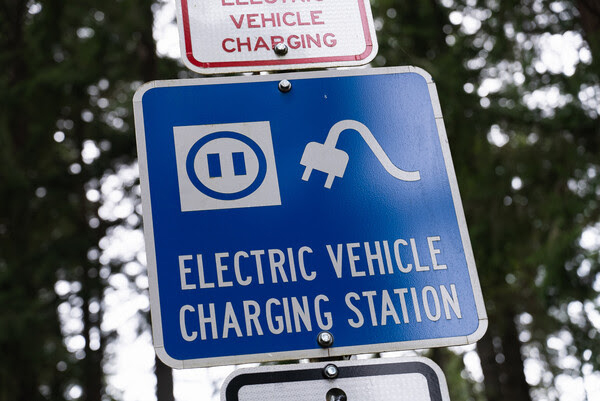Electric cars are coming at a faster clip. Are we ready to charge all of them?
The Biden Administration set aside more than $5 billion to build 500,000 chargers nationwide through the National Electric Vehicle Infrastructure (NEVI) Formula Program. At least 35 states, including Washington, have had their NEVI plans approved and have begun to receive funding. Washington will receive a total of $71 million over the next five years through the program, officials said.
In addition, Washington will invest $69 million a year to install new chargers statewide, with special emphasis on serving multi-family housing that lacks dedicated parking for vehicles.
Only 200 public charging locations statewide offer fast charging. Chargers are mostly concentrated in the Seattle-Tacoma-Bellevue area. Drivers encounter chargers in disrepair, a variety of charging standards and speeds, and a variety of required apps and payment methods, according to the state Department of Transportation. To address those issues, state officials are creating policies to require accessible payment with credit cards, and maintenance standards to ensure that stations work.
Recipients of federal and state funding to install chargers must produce a maintenance plan to keep chargers in operation. The state will also require chip readers for all new charging stations beginning next January. That means anyone with a pre-paid debit card or credit card can charge, without the need for a proprietary app.
“I don’t know how people pay for it. I think on the app, you have to set up a credit card,” said Jacqueline, a new EV (electric vehicle) driver from Tacoma. “That’s the part I don’t like. You have to do everything through this app. That’s kind of rough.”
“If you’re driving a long way, it can take some ingenuity,” says Randy Brooks. “But EV travel is nearing convenience. You can get anywhere in Western Washington no problem, and an experienced EV owner can get anywhere they want with a little planning.”
Brooks serves on the board of Plug-In North Central Washington, and leading the charge to expand EV ownership in Chelan County. Brooks is a seasoned long-distance EV driver, and he recently returned from a 5,400-mile trip in his Tesla. Back in 2016, Brooks couriered a letter from the mayor of Everett to the mayor of Spokane in his EV to promote electrification.
Brooks gets around just fine, and he says things are getting better fast. There are now more than 4,000 public charging ports in Washington state. The range of new EVs improves every year. Charging an EV at home in Chelan County costs the equivalent of just $0.30 a gallon. Brooks’ experience is proof that EVs are indeed practical, even for drivers in expansive Central Washington.
Even before NEVI funding, state grants were helping municipalities build local charging stations. The town of Steilacoom received one to install public charging stations outside of its public works facility, and the Lacey is using state grants to build new chargers near its city hall and library. Mount Vernon has a similar project involving 75 public chargers.
A robust streetside charging network would help Washingtonians without off-street parking, like in urban areas or multifamily housing. The City of Seattle is installing 31 new curbside chargers this summer, for example.
Those who wish to charge at home may benefit from local utility programs or federal tax credits. EV drivers who installed a charger at home in 2022, for example, could have received a tax credit 30% of hardware and installation costs during the 2023 tax season. State agencies and legislators are debating “right to charge” policy that would prevent HOAs from prohibiting charging.
Electric vehicles are no longer fledgling. Newer models have extraordinary range, high customer satisfaction, and compelling amenities. But the charging experience away from home still shows some minor growing pains of a nascent technology.
“But those growing pains are fading,” Governor Jay Inslee wrote in an article published by his office May 18. There are roughly 3,500 gas stations in Washington, and through a mix of private enterprise and public investment, many thousands more charging stations are coming atop the 4,000 already operating, he noted.
“It won’t be long until EV chargers are ubiquitous, and it won’t be long until our daily travels cease to choke the air we share,” Inslee wrote.
Source: Washington governor’s office.
